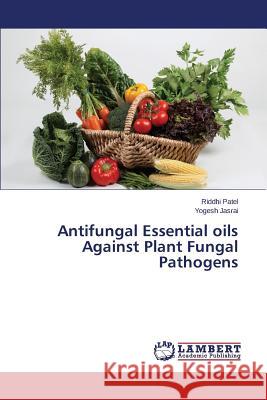Antifungal Essential oils Against Plant Fungal Pathogens » książka
Antifungal Essential oils Against Plant Fungal Pathogens
ISBN-13: 9783659669637 / Angielski / Miękka / 2014 / 52 str.
Predominately used synthetic chemical fungicides due to their non-degradable nature, entail serious issues to human health and also to the environment. This has also imposed the issue of drug resistant pathogens against traditionally used synthetic chemical fungicides. To combat this issue several in vitro and in vivo research reports have been generated on post-harvest treatment using plant extracts and essential oils to control fungal spoilage and thereby enhancing the self-life of fruits and vegetables. Plant based antifungal components have a target specific effect and are bio-degradable in nature. Thus they are best alternative to these hazardous synthetic chemicals. Biochemically antifungal principles can disrupt the membrane, causing cell leakage, cytoplasmic evacuation and loss of proton motive force (proton gradient including the membrane potential) and thereby results in the fungal growth inhibition. In the present study, essential oils from four Indian plants namely Cymbopogon citrates, Eucalyptus globules, Gaultheria procumbens and Syzygium aromaticum were used to find their potential antifungal activity against eleven important crop destroying fungal strains.
Predominately used synthetic chemical fungicides due to their non-degradable nature, entail serious issues to human health and also to the environment. This has also imposed the issue of drug resistant pathogens against traditionally used synthetic chemical fungicides. To combat this issue several in vitro and in vivo research reports have been generated on post-harvest treatment using plant extracts and essential oils to control fungal spoilage and thereby enhancing the self-life of fruits and vegetables. Plant based antifungal components have a target specific effect and are bio-degradable in nature. Thus they are best alternative to these hazardous synthetic chemicals. Biochemically antifungal principles can disrupt the membrane, causing cell leakage, cytoplasmic evacuation and loss of proton motive force (proton gradient including the membrane potential) and thereby results in the fungal growth inhibition. In the present study, essential oils from four Indian plants namely Cymbopogon citrates, Eucalyptus globules, Gaultheria procumbens and Syzygium aromaticum were used to find their potential antifungal activity against eleven important crop destroying fungal strains.











